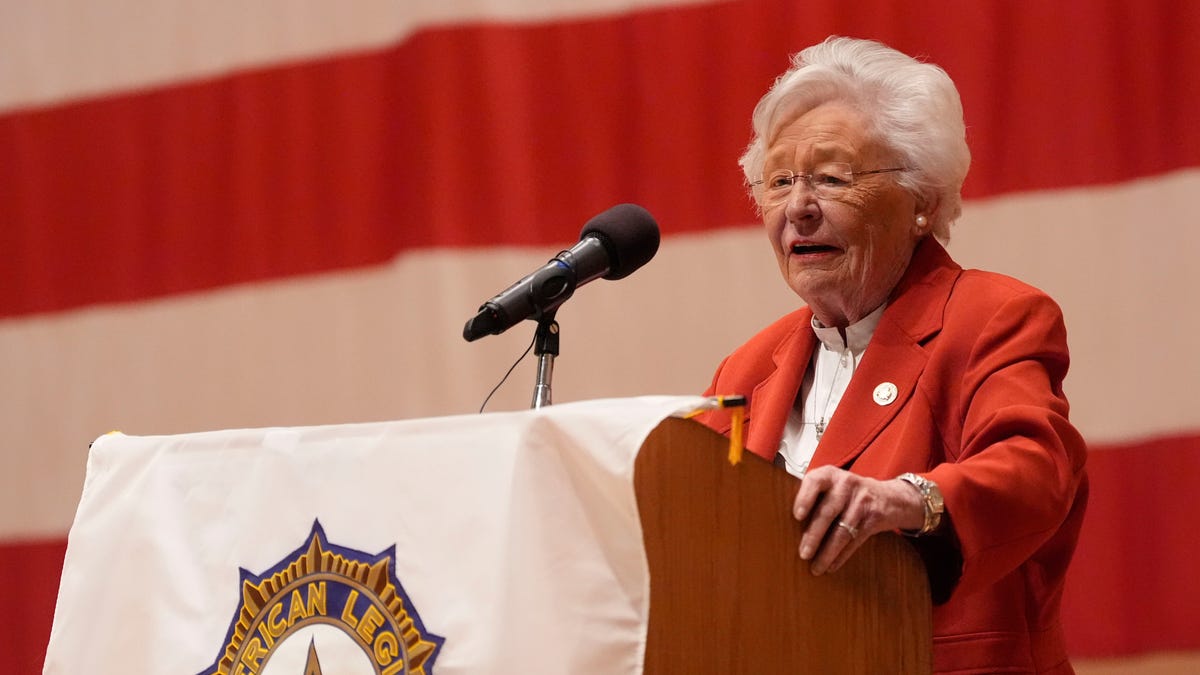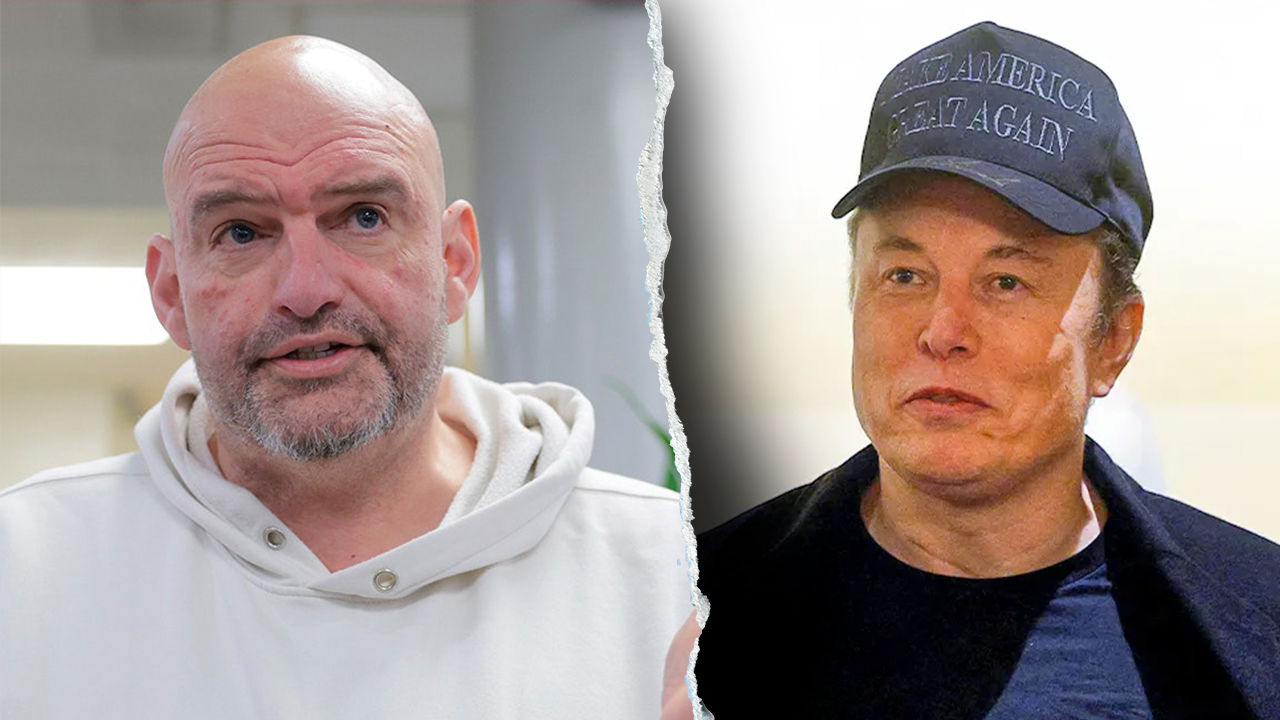World
End of an era? GOP walkout shows political chasm where ‘The Oregon Way’ once meant bipartisan trust

SALEM, Ore. (AP) — Oregon has long been seen as a quirky state whose main city was satirized in a TV comedy, where rugged country folk and urban hipsters could get along and political differences could be settled over a pint or two of craft beer.
But with a Republican walkout in the Democrat-controlled Oregon Senate in its third week, Oregonians these days are wistfully recalling “The Oregon Way,” when politicians of different stripes forged agreements for the common good. Famous examples include establishing the nation’s first recycling program, ensuring public beach access for the entire coastline and limiting urban sprawl in a pioneering land-use program.
A quarter-century ago, former Republican U.S. Sen. Gordon Smith and current Democratic U.S. Sen. Ron Wyden championed legislation together in Congress and even jointly appeared at town halls across the state, said Kerry Tymchuk, who was Gordon’s chief of staff back then. That spirit of cooperation was mirrored in the Legislature, he said.
“There were moderate Republicans in the Legislature who represented suburban Portland. There were conservative Democrats who represented some of the rural districts,” said Tymchuk, currently the executive director of the Oregon Historical Society. “And now there are no more Democrats in the rural districts. There are no more moderate Republicans.”
The crisis in Oregon’s statehouse is a microcosm of the deeply partisan politics playing out nationwide, often pitting urban against rural areas, and the growing divide in Oregon shows the Pacific Northwest state is not immune.
The gridlock in the state Capitol in Salem comes as Oregon grapples with homelessness, mental health issues, a fetid open-air drug market in Portland and gun violence in the state’s main city, where some businesses are fleeing, including outdoor gear retailer REI.
Elsewhere, a campaign by conservative activists in rural eastern Oregon counties to secede and join neighboring Idaho has gained steam amid growing complaints about the state’s progressive politics.
“There is no turning back now,” Republican Sen. Daniel Bonham said of the GOP boycott.
“We are in it for the long haul. Oregon is in a leadership crisis,” he emailed his constituents, who live mostly east of Portland along the Columbia River and along the flanks of snow-capped Mount Hood.
The drumbeat of political discord has been building in Oregon for some time: Republicans walked out in 2019, 2020 and 2021. A breach of the state Capitol in December 2020 was an eerie predictor of the Jan. 6, 2021, insurrection.
In 2001, Democrat House members, then in the minority, walked out over redistricting. There was even a walkout in 1860, a year after statehood, with six senators hiding for two weeks in a barn to prevent a quorum.
The departure this year of an unpopular governor and the success of several bipartisan bills on affordable housing, homelessness and mental health funding early this session buoyed hopes that this year, things might be different — until this month.
The GOP boycott, which began May 3, now threatens to derail hundreds of pending bills, approval of a biennial state budget and the boycotters’ own political futures. Neither side seems willing to give an inch over a bill on abortion rights and transgender health care and another measure on guns.
This year’s standoff has disqualified nine Republican senators and one Independent from serving as lawmakers in the next term under a ballot measure approved overwhelmingly by boycott-weary voters last November. After 10 or more unexcused absences, a lawmaker can’t take office in the Legislature, even if the secretary of state’s elections division allows them on the ballot and they win.
A disqualified lawmaker running for reelection could disrupt Oregon’s election system, already shaken by the resignation of Secretary of State Shemia Fagan this month for secretly moonlighting as a highly paid consultant to a marijuana business. Striking Republican lawmakers have pointed to Fagan’s actions as a sign of corruption among Democratic politicians.
Senate President Rob Wagner, new to the job after his predecessor, Peter Courtney — the longest-serving Senate president in Oregon history — retired last year, accused GOP lawmakers of undermining democracy.
“This walkout must end,” Wagner said from the rostrum Thursday as he gaveled closed another session because of a lack of quorum. “The people of Oregon desire it. Democracy demands it.”
In Oregon, two-thirds of the 30 members of the Senate must be present for a quorum for floor sessions. In recent days, 18 senators showed up but most Republicans and the lone Independent didn’t.
Democratic and Republican leaders in the statehouse have met to end the boycott, but talks have repeatedly failed amid social media sparring, grandstanding to supporters and emailed accusations.
Republicans accuse Democrats of ignoring a long-forgotten 1979 law that says summaries of bills need to be written at an eighth-grade level — a law resurrected this month by the GOP. The boycotters also say they won’t return unless “extreme” bills, like the ones on abortion, gender-affirming care and gun safety, are scrapped.
Wagner has said House Bill 2002 on abortion and gender-affirming care is nonnegotiable. Republicans object, in particular, to a provision that would allow doctors to provide an abortion to anyone regardless of age and bar them in certain cases from disclosing that to parents.
The last day of Oregon’s legislative session is June 25. Democratic Gov. Tina Kotek has signed a bill to keep funds flowing to state agencies until September if no budget has become law by July 1 and says she doesn’t think the state “is in crisis mode yet.”
She could call a special legislative session in the summer to get a budget approved and hasn’t ruled out ordering the Oregon State Police to haul the protesters to the Senate. Such an order was issued in 2019 but not carried out.
Despite all the rancor, Tymchuk doesn’t believe The Oregon Way is dead.
“I still remain hopeful and optimistic that Oregon will find its way back,” he said.

World
The Netherlands to hold election on October 29 after government collapse

Polls indicate a close race between Dutch far-right PVV party and the Labour/Green Left alliance.
Dutch voters will head to the polls on October 29 in snap elections triggered by the dramatic collapse of the right-wing ruling coalition.
Interior Minister Judith Uitermark announced the election date on Friday and said she would coordinate with municipalities to ensure a smooth voting process.
Polls indicate a close race between the far-right Party for Freedom (PVV), led by firebrand Geert Wilders, and the Labour/Green Left alliance, headed by former European Commission Vice President Frans Timmermans.
The centre-right VVD is trailing slightly behind, suggesting a tightly contested vote.
The election was called after Wilders withdrew the PVV from the governing coalition in a dispute over immigration policy, pushing Prime Minister Dick Schoof and his cabinet to resign.
Wilders had accused the government of dragging its feet on implementing what was intended to be the “strictest-ever” immigration policy agreed by the four-way coalition.
His decision to bring down the coalition prompted a backlash from partners, who accused him of acting out of self-interest.
“We had a right-wing majority and he’s let it all go for the sake of his ego,” said Dilan Yesilgoz, leader of the VVD, which was a coalition member.
“It is irresponsible to take down the government at this point,” added Nicolien van Vroonhoven, leader of the NSC, another member of the collapsed alliance.
Wilders’s PVV stunned the political establishment in November 2023 by winning 37 of the 150 seats in parliament – emerging as the largest party by a strong margin.
To govern, he assembled a four-party coalition with the VVD, the farmers’ BBB party and the anticorruption NSC – but the price was to give up his ambition to become prime minister.
Polling as of May 31 shows the PVV’s support has dipped slightly – from 23 percent at the time of the 2023 election to 20 percent. The Labour/Green Left alliance follows closely with 19 percent and currently holds 25 seats in the lower house of parliament, second only to the PVV.
The fragmented political landscape makes the outcome difficult to predict.
In the meantime, Schoof has said he and his cabinet will continue in a caretaker role until a new government is formed.
World
Pacers commit 19 first-half turnovers in Game 1 of NBA Finals against Thunder
OKLAHOMA CITY (AP) — The Indiana Pacers started the NBA Finals by making the wrong type of history.
The Pacers committed 19 turnovers in the first half of Game 1 against the Oklahoma City Thunder on Thursday night. It was the highest number of turnovers by a team before halftime of a postseason game during the league’s digital play-by-play era, which goes back to the 1997 playoffs.
There has not been a 20-turnover first half in any NBA game since Nov. 17, 2007, when the New Jersey Nets — the franchise that now plays in Brooklyn — had that many in the first two quarters of what became a 91-87 loss to the Miami Heat.
The Pacers had nine turnovers in the first quarter, 10 more in the second. But they were only down 57-45 at the half, in part because Oklahoma City had turned the 19 Indiana giveaways into only nine points.
Oklahoma City led the NBA this season in turnovers forced, averaging 17.0 per game in the regular season.
___
AP NBA: https://apnews.com/hub/NBA
World
Netanyahu coalition threatened by conscription standoff with religious parties

NEWYou can now listen to Fox News articles!
Israel is facing a deepening political crisis that could soon bring down Prime Minister Benjamin Netanyahu’s right-wing coalition, as one of its key ultra-Orthodox partners threatens to leave the government and back an opposition-led motion to dissolve parliament next week. In a dramatic escalation on Thursday, the Council of Torah Scholars today instructed the Agudat Yisrael party to submit its own bill to dissolve the Knesset.
Recent Israeli opinion polls indicate that Netanyahu’s coalition would likely lose power if elections were held today.
The crisis centers on long-standing tensions over military conscription exemptions for ultra-Orthodox (Haredi) men. While most Israelis are required to serve – three years for men, two for women – Haredi men have long been granted exemptions, a policy increasingly seen as untenable amid the ongoing war in Gaza.
TRUMP ADMIN STANDS BY ISRAEL, REJECTS UN RESOLUTION BACKED BY UK AND FRANCE
Protesters in Tel Aviv after the bodies of six hostages were returned to Israel. Sept. 1, 2024. (Reuters/Florion Goga)
Haaretz political correspondent Amir Tibon said, “The real crisis shaking Netanyahu’s coalition isn’t just religion versus state – it’s the war in Gaza, and who will be forced to fight it. Discrimination against those who serve in the military is one of the few issues that unites a vast majority of Israelis – and they want it to end.”
According to IDF estimates, there are approximately 60,000 ultra-Orthodox men of conscription age.
“The crisis stems from the October 7 massacre,” said Amit Segal, political correspondent for Israel’s Channel 12. “Before the war, many Israelis already resented Haredi draft exemptions. Now, with the IDF short on soldiers, that anger has reached a boiling point.”
Segal said Netanyahu’s coalition is currently eyeing Oct. 21, 2025, as a possible election date, but warned that if the ultra-Orthodox parties leave, early elections could become inevitable. “It’s unlikely the ultra-Orthodox parties will topple the government – they’re in their ideal coalition,” he stated. “But if they do leave, elections in October are likely.”

IDF forces are seen operating in Rafah, a city in the Gaza Strip. (IDF Spokesman’s Office)
In March, Israel’s Supreme Court ruled that the draft exemptions were unconstitutional and ordered the government to resolve the issue. But Netanyahu’s coalition – which relies heavily on the 18 seats held by the ultra-Orthodox parties Shas and United Torah Judaism – remains split. The Haredi parties are demanding new legislation that would enshrine the exemptions in law. Without it, they threaten to quit.
ISRAELI AMBASSADOR LASHES OUT AT UN OFFICIAL, CONDEMNS UK, FRANCE, CANADA STATEMENT ON AID
If those parties walk, Netanyahu’s coalition could collapse, Segal explained, “The prime minister has seven weeks until the Knesset enters a months-long recess and will fight to survive until then. But with a bill to dissolve the Knesset set to be presented next week, there’s no guarantee he’ll reach July 27 as prime minister.”

Dozens of protesters stage a demonstration inside Jerusalem’s ultra-Orthodox Mea Shearim neighborhood, calling for the community to be drafted to the IDF. (Eyal Warshavsky/SOPA Images/Sipa USA/Sipa via AP Images)
The bill, introduced by opposition party Yesh Atid, led by former Prime Minister Yair Lapid, is set for a vote on June 11. It needs 61 votes to pass – a number that could be reached if even a few coalition members defect.
Meanwhile, former Prime Minister Naftali Bennett has announced a political comeback with a new party, tentatively called “Bennett 2026.” Israeli media polls suggest Bennett would win 24 to 28 seats if elections were held today, overtaking Netanyahu’s Likud, which is projected to receive only 19 to 22 seats.
-

 News1 week ago
News1 week agoVideo: Faizan Zaki Wins Spelling Bee
-

 Politics6 days ago
Politics6 days agoMichelle Obama facing backlash over claim about women's reproductive health
-

 News1 week ago
News1 week agoVideo: Harvard Commencement Speaker Congratulates and Thanks Graduates
-

 Politics1 week ago
Politics1 week agoMusk officially steps down from DOGE after wrapping work streamlining government
-

 News1 week ago
News1 week agoPresident Trump pardons rapper NBA YoungBoy in flurry of clemency actions
-

 Technology1 week ago
Technology1 week agoAI could consume more power than Bitcoin by the end of 2025
-

 Business1 week ago
Business1 week agoSix Flags to cut 135 jobs at Knott’s, Magic Mountain and other California parks
-

 Technology1 week ago
Technology1 week agoSEC drops Binance lawsuit in yet another gift to crypto

















